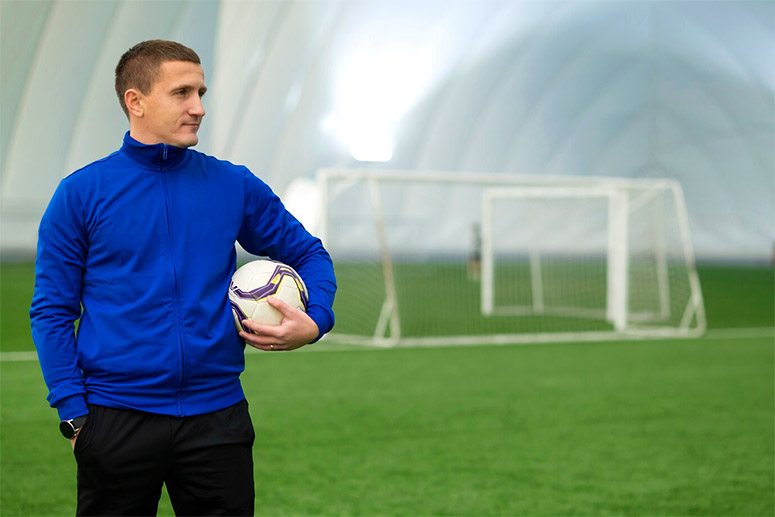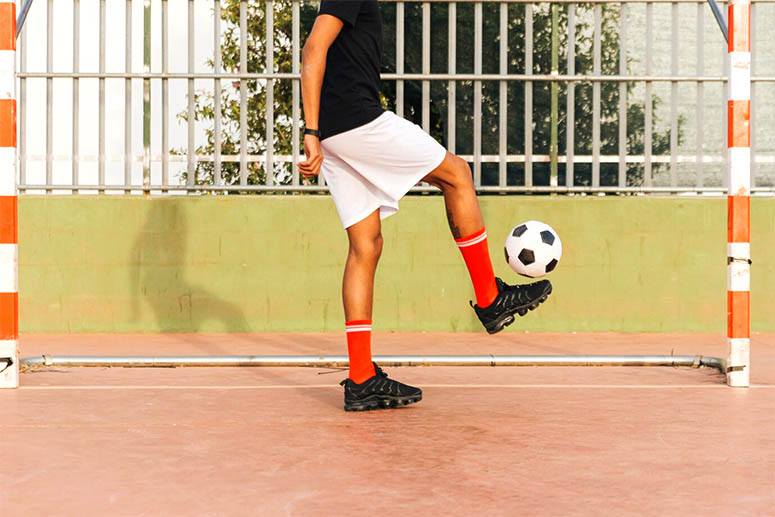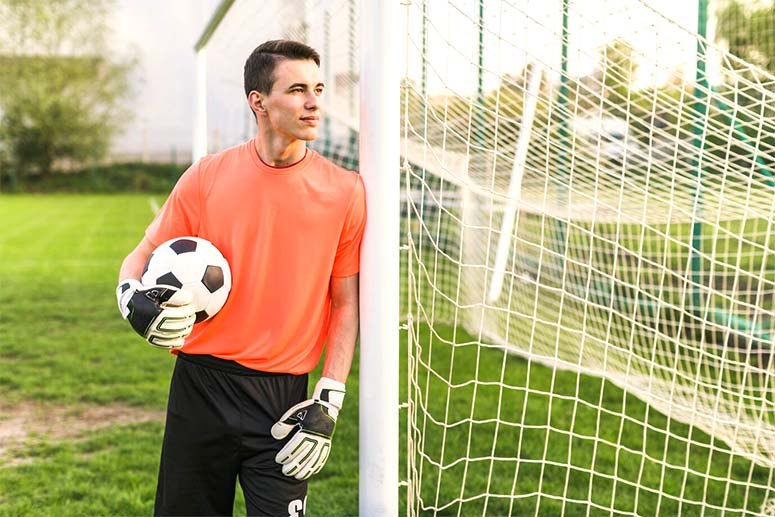Contents
What are the odds of becoming a professional soccer player?Becoming a professional soccer player is a dream for many aspiring athletes, but the journey requires more than just passion for the game.
This piece explores the essential physical and mental requirements that form the backbone of a successful soccer career.
From the importance of speed and endurance to the mental toughness needed to face challenges, the skills and attributes that set elite players apart will be covered.
The competitive landscape and the steps needed to stand out and succeed in the world of professional soccer will also be examined.
Understanding these crucial elements is essential for anyone looking to turn their soccer aspirations into reality.
What are the physical requirements for a professional soccer player?
To pursue a career as a professional soccer player, one must meet specific physical requirements that combine elements of athleticism, skill level, and physical fitness essential for competing at the highest levels of the sport.
These requirements include not just technical skills and game intelligence but also a rigorous training regimen and a focus on physical conditioning to withstand the demands of professional leagues.
Furthermore, understanding injury risks and ensuring proper conditioning during training can significantly influence a player’s overall performance and longevity in their career. What are the odds of becoming a professional soccer player? This question highlights the importance of meeting these rigorous physical standards to succeed in such a competitive field.
What are the key skills needed?
Key skills needed for a professional soccer player include tactical awareness, teamwork, leadership skills, and a high skill level, all of which are critical for executing game strategies and succeeding on the field.
Successful gameplay relies heavily on how well players communicate and coordinate with one another, which is why enhancing these skills through effective training methods is essential.
For instance, regular participation in small-sided games can improve teamwork by fostering quick decision-making and collaboration under pressure.
Reviewing game footage helps players develop their tactical awareness, enabling them to anticipate opponents’ moves and create strategic advantages.
Ultimately, mastering these skills not only elevates individual performances but also enhances the overall dynamics of the team, leading to a more cohesive and successful approach to soccer.
How important is speed and endurance?

Speed and endurance are paramount physical attributes for a professional soccer player, as they directly impact a player’s effectiveness during match experiences and overall physical fitness.
These qualities not only influence an athlete’s ability to make quick breaks or recover after sprinting down the field but also play a crucial role in maintaining performance levels throughout the entire game.
A soccer player’s capacity to outpace opponents while possessing the stamina to last through the final minutes can often determine the outcome of tightly contested matches.
To develop these essential attributes, players often engage in various training techniques, including:
- High-intensity interval training;
- Agility drills;
- Long-distance runs.
By integrating these exercises into their routines, soccer athletes enhance their cardiovascular health, muscle strength, and overall athleticism, contributing significantly to their success on the field.
What are the ideal body measurements for a soccer player?
While there is no one-size-fits-all answer to the ideal body measurements for a soccer player, certain physical attributes commonly associated with athleticism can enhance performance and fit various positions on the field.
For instance, a forward may benefit from a more powerful build to facilitate explosive sprints and agility needed to outmaneuver defenders, while a goalkeeper might prioritize height and wingspan to effectively cover the goal.
Midfielders often possess a balanced combination of speed and endurance, allowing them to transition seamlessly between offense and defense throughout the match.
Factors such as body composition, flexibility, and core strength also play critical roles in maximizing each player’s capabilities.
By understanding how these metrics correlate with their unique positional demands, athletes can better tailor their training regimens to optimize their performance.
What are the mental requirements for a professional soccer player?
Mental requirements for a professional soccer player are as crucial as physical demands, encompassing mental toughness, discipline, and resilience, which collectively contribute to a player’s ability to perform under pressure and achieve their goals.
What are the odds of becoming a professional soccer player? Understanding these mental requirements can provide insight into the necessary psychological traits needed to thrive in such a competitive environment.
How important is mental toughness?
Mental toughness is a core attribute for professional soccer players, enabling them to handle the pressures of competition, maintain focus, and stay disciplined during training and matches.
This psychological resilience allows athletes to push through fatigue, manage anxiety, and recover quickly from setbacks.
For instance, a player might miss a critical penalty kick but, rather than dwelling on the mistake, they channel their mental toughness to refocus and perform effectively in subsequent opportunities.
This ability to compartmentalize adversity and thrive despite challenges is essential in high-stakes environments, where the pressure to perform can be overwhelming.
Sports psychologists emphasize that mental endurance not only enhances concentration but also fosters a mindset geared towards growth and learning, ultimately fueling long-term success in a player’s career.
What are the key mental skills needed?

Key mental skills necessary for a professional soccer player include game intelligence, focus, and discipline, all of which are essential for maximizing performance in competitive environments. Game intelligence involves understanding the game deeply, including anticipating opponents’ actions and making rapid, precise decisions under pressure.
It allows players to read the game effectively and adapt their strategies as needed. Focus is critical for maintaining concentration throughout a match, as distractions can easily lead to costly mistakes. Players need to stay mentally present to execute their roles effectively and respond to dynamic game situations.
Discipline is necessary for adhering to rigorous training regimes, maintaining a high level of fitness, and sticking to game plans. It helps players consistently perform at their best and adhere to the demands of their roles.
To know what are the odds of becoming a professional soccer player, understand these attributes not only enhance a player’s ability to anticipate opponents’ actions but also allow them to make rapid, precise decisions under pressure. Game intelligence allows players to out think their opponents and exploit weaknesses.
Focus ensures that players can execute their skills and strategies accurately, while discipline ensures they remain committed to their goals. Together, these skills form the foundation for top-level performance and success in soccer.
Mental preparation plays a crucial role in helping athletes maintain concentration throughout a match, as distractions can easily lead to costly mistakes. Strong focus aids in visualizing plays and strategies, giving players the power to execute them effectively.
By preparing mentally, players can reduce anxiety and improve their decision-making abilities during critical moments of the game. Concentration and mental resilience enable players to stay calm and composed, even in high-pressure situations.
By cultivating these mental skills through sports psychology techniques, players can develop a resilient mindset, leading to improved teamwork and higher overall performance on the field. Engaging in mental training helps players enhance their focus, manage stress, and maintain a positive attitude, all of which contribute to better performance.
Resilience built through mental preparation helps players overcome challenges and setbacks, leading to a more cohesive and effective team. Ultimately, these mental skills are crucial for achieving sustained success and excelling in the competitive world of professional soccer.
How important is a positive attitude?
A positive attitude is crucial for professional soccer players, influencing not only their own performance but also the overall dynamics of teamwork and sportsmanship within the squad.
When players adopt an optimistic mindset, they are better equipped to face challenges on the field, showing remarkable mental toughness that allows them to bounce back from setbacks.
This resilience not only enhances individual performance but reinforces team cohesion, as teammates are inspired by each other’s enthusiasm and determination.
Fostering an environment of positivity encourages open communication, creating a culture where collaboration thrives and everyone feels valued.
As a result, teams often find themselves more unified, leading to improved collective strategies and a greater sense of camaraderie that can turn the tide in competitive situations.
What are the odds of becoming a professional soccer player?
The odds of becoming a professional soccer player are significantly influenced by competition levels, success rates, and various statistics that highlight the challenges faced by aspiring athletes in their player development journey.
What is the competition like?
Competition within the realm of soccer is fierce, especially at youth academies and professional teams, where aspiring players face rigorous recruitment processes and high expectations.
This competitive environment is characterized by an ongoing battle for talent, as clubs seek to identify and nurture the next generation of stars while managing the immense pressure to deliver results.
Youth academies often implement structured scouting networks that assess skills, physical attributes, and potential, ensuring that even young players are put to the test.
These recruitment strategies can vary widely, presenting challenges not just for the players, who must constantly prove their worth, but also for the coaches and talent scouts tasked with making crucial decisions about a player’s future in the sport.
The stakes are high, and each missed opportunity can significantly impact a player’s career trajectory.
What percentage of youth players make it to the professional level?
Statistics reveal that the success rate for youth players making it to the professional level is alarmingly low, highlighting the fierce competition and rigorous recruitment processes involved.
In fact, it is estimated that less than 1% of youth soccer players will ever secure a professional contract, a staggering figure that underscores the challenges faced by aspiring athletes.
What are the odds of becoming a professional soccer player? Factors contributing to this low success rate include the sheer volume of young talent vying for limited opportunities, along with the intense scrutiny from scouts who are often looking for those with exceptional skills and physical attributes.
Many young players encounter hurdles such as injury, lack of proper development resources, and insufficient support systems that can further impede their journey towards achieving professional status in this highly competitive sport.
How many professional players are there in the world?

As of 2023, there are thousands of professional soccer players worldwide, with their numbers spread across various leagues and representing diverse international play.
In fact, estimates suggest that there are over 250,000 registered professional footballers globally, competing in leagues ranging from the prestigious English Premier League and Spain’s La Liga to emerging leagues in Asia and Africa.
Europe remains the epicenter of professional soccer, housing the majority of players, but regions like South America and North America are rapidly developing talent pools.
The different tiers of competition showcase an incredible variety of skill levels and styles, with many players also participating in international tournaments such as the World Cup and continental championships.
This vibrant landscape not only highlights the global reach of the sport but also indicates ongoing growth in fan engagement and player representation across the world.
What are the steps to becoming a professional soccer player?
The journey to becoming a professional soccer player typically follows a structured career path that includes participation in youth academies, rigorous training, and often, securing scholarships to further one’s player development.
What is the typical path for youth players?
The typical path for youth players aspiring to go professional often begins in local amateur leagues, followed by training in soccer academies and participation in scouting events to gain visibility.
As they hone their skills on the field, these young athletes learn the fundamentals of teamwork, strategy, and discipline, which are crucial for their development.
Youth academies play a vital role in this journey, providing structured training methods and mentorship from experienced coaches. Through rigorous drills and competitive play, players cultivate their talents and prepare for the intense scrutiny that comes with scouting.
Understanding what are the odds of becoming a professional soccer player can also motivate players to persevere through challenges and stay committed to their development.
Scouting events offer a chance for talent evaluators to spot potential stars, and for the players, it can be the stepping stone to lucrative contracts and a fulfilling professional career.
This transition from grassroots to professional levels is marked by dedication, perseverance, and a strategic approach to training that maximizes their chances of success.
What are the best ways to get noticed by professional teams?
To get noticed by professional teams, aspiring players must seek exposure through effective networking, showcase their skills in competitive settings, and engage in scouting opportunities.
Building relationships with coaches and attending various sports camps can significantly enhance their chances of being spotted.
Engaging actively on social media platforms specifically geared toward sports can also play a crucial role, as many scouts browse these channels to identify promising talent.
Taking part in showcases where they can demonstrate their abilities in front of influential figures provides invaluable experiences.
Volunteering for community events not only hones their skills but also helps in creating a positive impression in the local sports scene, thereby widening their network and increasing their visibility among professional organizations.
What are the necessary training and education?

Necessary training and education for aspiring professional soccer players encompass rigorous physical conditioning, skill development, and often formal learning through soccer academies.
In these environments, players not only refine their technical abilities, such as passing, dribbling, and shooting, but they also gain invaluable knowledge about game strategies and tactics.
Fitness regimes are crucial, incorporating elements like strength training, agility drills, and cardiovascular workouts to build endurance and minimize injury risk.
Aspiring players benefit from nutrition education, which enhances their overall performance on the field.
Understanding mental resilience, teamwork, and communication skills also plays a pivotal role in developing well-rounded athletes capable of excelling in competitive settings.
You can read our FAQ of what are the odds of becoming a professional soccer player a little bit down on the page.
Delve into the world of probabilities and rare events to satisfy your curiosity. Discover more intriguing insights by exploring our other articles at WhatAreTheOddsOf.NET.



